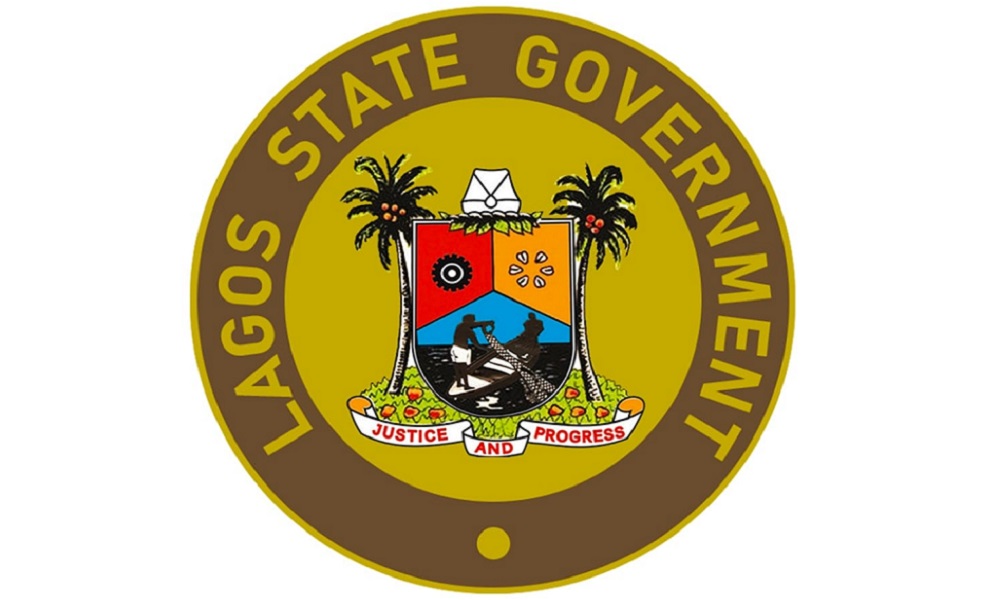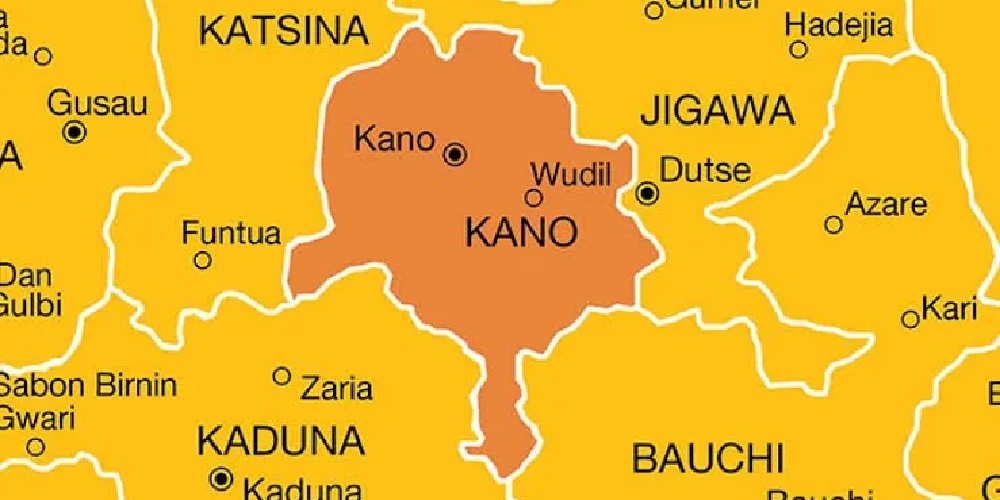Education
FG moves to restructure school feeding programme

By Francesca Hangeior.
The Nigerian Home Grown School Feeding Programme, on Thursday, got a boost with a partnership between the Federal Government and the Partnership for Child Development, Imperial College, London.
President Bola Tinubu, on January 12, suspended all programmes of the National Social Investment Programme Agency for six weeks.
The four programmes administered by NSIPA are N- Power Programme, Conditional Cash Transfer Programme, Government Enterprise and Empowerment Programme, and Home Grown School Feeding Programme.
A statement by the Director of Information, Office of the Secretary to the Government of the Federation, Segun Imohiosen, said the suspension was based on the investigation of alleged malfeasance in the management of the agency and its programmes.
But Yetunde Adeniji, the Senior Special Assistant to the President on the Home Grown School Feeding Programme, who spoke at a stakeholders’ workshop in Abuja, said the partnership with the international organisations on the school feeding scheme was part of Tinubu’s Renewed Hope Action plans.
Adeniji said that the workshop was to launch the Value for Money Study, which seeks to estimate the cost of the National Home Grown School Feeding Programme, to reflect on its multi-sectoral benefits and its impact on socio-economic, as well as human capital development of the country.
She noted that the objective of the study was also to determine the effectiveness of the school feeding programme in improving students’ attendance and academic performance, in other words, she said it was a comparative analysis of the benefits of investing in school feeding, versus other education interventions.
“This study, fully sponsored by the Imperial College, is research that improves the level of school feeding within the states. It will help evaluate the programme to know issues, indices, and whatever challenges the programme has had in the past.
“This programme or research will also help us when it comes to our international partners. Once Nigeria is certified, we know that we will be able to get more value, especially when we are talking to our foreign partners, foreign development agencies, and NGOs.
She said the study, which will first be launched in Kaduna and Osun states, will subsequently extend to six states, one from each geopolitical zone of the country, and fully cover the whole 36 states by the end of the year.
According to her, data for the study will be through primary and secondary sources, and youths in the states will be recruited to collect the primary data from relevant stakeholders including schools, state ministries, departments and agencies relevant to school feeding, cooks, farmers, and community members.
“These data would be forensically analysed by local and foreign experts, led by Prof. Lesley Drake of PCD Imperial College, London.
“The research is a commendable one, it is a huge one, it also is going to benefit some of our youths within those states, because once they are appointed to be part of the research, they will also get paid, and it will help them improve their status or whatever they are doing for a living.
“The Research will ensure transparency, and accountability, but most importantly, preventing bottling, the programme will ensure bottlenecks are actually cleared towards ensuring a better school feeding programme.
“With steps like these, we will ensure improved implementation, knowing that we have been certified by reputable institutions,’’ Adeniji said.
According to her, the stakeholders’ meeting marks the take-off of the programme, which will then be taken to the states, then to the local government areas.
She also said teachers, principals, traditional rulers, and community members, would be carried along in the implementation process that would be fully monitored by state governments.
“The end participants, however, are the kids.’’
Also shedding more light on the study, Abimbola Adesanmi, of the PCD, Nigeria Office, said the Value for Money Study was aimed at determining the cost of the programme and its benefits to the government.
“The essence of the study is to provide an empirical report to the government to guide it on the scale-up of investment on the school feeding programme,’’ Adesanmi said.
She said the study would help understand many issues such as; the cost of transportation, feeding, what teachers spend to have children in class, and the cost of infrastructure, all in a bid to improve implementation.
“All the research and study is to help us understand what the farmers are providing for us; is it season-based or on availability? What are the factors influencing the cost of the meals? All these are to enable us to ensure healthy and nutritious meals to school children, and local smallholder farmers are part of the programme.
“If we are able to marry those two goals together, definitely there will be impact on human capital development and economic empowerment in the country,’’ she said.
According to Adesanmi, it is a nationwide programme, and starting with Kaduna and Osun states is a proof of concept since it is also being supported by some partners within the country.
“By the end of the year, we hope to complete the 36 states and give the government a report to say this is what you need to improve, to restructure, and to redesign the programme appropriately.’’
Over the years, the Nigerian Home Grown School Feeding Programme has generated economic opportunities for smallholder farmers, local businesses, and women-led enterprises.
Other partners in the programme include; Harvard University, London, the Federal Ministries of Humanitarian Affairs, Education, Health, Agriculture, Budget and Economic Planning, and the Universal Basic Education Commission, among others.
Education
Lagos commences e-registration for 2025 UBE test

*Set to include Yoruba language
By Francesca Hangeior
The Lagos State Government has commenced electronic registration for the 2025 Universal Basic Education by Continuous Assessment Scores and Placement Test.
This development is part of the state’s efforts to provide quality education to its citizens.
According to a circular signed by the Director of the Lagos State Examinations Board, on Monday, Mr Orunsolu Adebayo, the registration would run from Monday, January 27 to Friday, April 18, 2025.
It read, “Only primary six pupils in public and approved private primary schools in Lagos State are eligible to participate in the UBE by CAS and Placement Test.
UBE-approved Social Study textbook teaches masturbation, dad claims
“Registration is free for public primary schools, while pupils of approved private primary schools are required to pay N5,000 per candidate through the Lagos State Central Billing System.”
It added that the Lagos State Examinations Board had also approved Yoruba Language as one of the subjects for testing the knowledge and thinking ability of pupils sitting for the Placement Test by CAS.
Adebayo, assured stakeholders and parents that measures were in place to ensure seamless and hitch-free registration.
He emphasised that no child would be left unattended during the registration process.
Lagos commences e-registration for 2025 UBE test
*Set to include Yoruba language
By Francesca Hangeior
The Lagos State Government has commenced electronic registration for the 2025 Universal Basic Education by Continuous Assessment Scores and Placement Test.
This development is part of the state’s efforts to provide quality education to its citizens.
According to a circular signed by the Director of the Lagos State Examinations Board, on Monday, Mr Orunsolu Adebayo, the registration would run from Monday, January 27 to Friday, April 18, 2025.
It read, “Only primary six pupils in public and approved private primary schools in Lagos State are eligible to participate in the UBE by CAS and Placement Test.
UBE-approved Social Study textbook teaches masturbation, dad claims
“Registration is free for public primary schools, while pupils of approved private primary schools are required to pay N5,000 per candidate through the Lagos State Central Billing System.”
It added that the Lagos State Examinations Board had also approved Yoruba Language as one of the subjects for testing the knowledge and thinking ability of pupils sitting for the Placement Test by CAS.
Adebayo, assured stakeholders and parents that measures were in place to ensure seamless and hitch-free registration.
He emphasised that no child would be left unattended during the registration process.
Education
FG announces resumption date for Unity Schools

The Federal Ministry of Education (FME) has announced that students at the 112 Federal Government Colleges will now return to school on January 12, 2025, instead of the originally scheduled January 5.
The extension, as confirmed by the Permanent Secretary of FME, Dr. Nasir Sani-Gwarzo, is due to ongoing renovations at several schools.
A circular issued to school principals explains the change, following approval from the Minister of State for Education, Dr. Suwaiba Ahmad.
At Kings College in Lagos, there has been no official update on the resumption schedule, leaving some parents confused.
Typically, senior students preparing for exams like WASSCE and NECO return first, but no formal notice has been issued this year.
Meanwhile, parents are currently making payments of N58,000 for SS III students.
The breakdown includes payment of boarding fees of N30,000, the balance of WAEC, NECO, and NABTEB fees of N11,000.
Other fees include N2,000 for medical, ICT training, extra lessons, and utility, and N1,000 for sports, vocational, clubs, societies, and security.
Education
LP speaks on alleged strange romance with Tinubu over 2027 presidential race

The Labour Party (LP) has strongly rejected rumors suggesting that it is in a partnership with President Bola Tinubu in anticipation of the 2027 elections. These rumors claimed that the LP had struck an agreement to support Tinubu’s bid for a second term should he choose to run.
In response, the LP’s National Publicity Secretary, Mr. Obiora Ifoh, issued a statement on Friday, labeling these allegations as baseless and unfounded. He emphasized that the party has continually dismissed any notion of collaboration with the ruling All Progressives Congress (APC) concerning the upcoming 2027 general elections.
Ifoh asserted that the Labour Party remains the most prominent opposition party in Nigeria, with the party’s National Chairman, Barrister Julius Abure, being a leading critic of the current government. “Our National Chairman is at the forefront of challenging the policies of the government, consistently voicing opposition to the actions of the current administration,” Ifoh said.
The spokesperson also highlighted the party’s ongoing efforts to strengthen Nigeria’s democracy. These include the establishment of an Electoral Reform Committee aimed at ensuring free, fair, and transparent elections, as well as the introduction of an e-membership registration system that has already attracted a significant number of new members.
Ifoh further expressed disappointment over the defamatory nature of the rumors, calling it “ridiculous and unfortunate” for anyone to attempt to undermine the Labour Party’s efforts in such a manner. “For anyone to try to tarnish the reputation of a party that is actively working to reshape the political landscape in Nigeria is truly unfortunate,” he remarked.
Finally, the Labour Party spokesperson challenged Deji Adeyanju and anyone else promoting such claims to provide concrete evidence to support their accusations. “We call on Deji Adeyanju and others to present factual proof if they believe that the leadership of our party or Mr. Abure has any intention of working with President Tinubu or the APC for the 2027 elections,” Ifoh stated firmly.
-

 News6 hours ago
News6 hours agoWike’s Aide reacts as photo appears online, points accusation finger at paid failed actress
-

 News12 hours ago
News12 hours agoUpdated: WATCH moment Gov Diri’s Tech Adviser Kerry admits blowing up pipelines (Video)
-

 News21 hours ago
News21 hours agoWATCH Gov Diri’s Tech Adviser, Kerry admits blowing up pipelines
-

 News23 hours ago
News23 hours ago“How I threatened to fire Wike over TSA exemption but I’m happy with him”-Tinubu
-

 News2 hours ago
News2 hours agoFormer HoR member, TeeJay Yusuf calls on IGP, Kogi govt, other agencies to curb rising insecurity in Okun-Yoruba
-

 News4 hours ago
News4 hours agoEdo Killings: Kano Govt Sends Fact-Finding Delegation, Demands Justice
-

 Entertainment22 hours ago
Entertainment22 hours agoEdo Assembly member, Natasha Updates Social Media with Fiancé’s Surname, Idibia
-

 News8 hours ago
News8 hours agoN24bn monthly salaries drive Oyo’s economic stability – Makinde assures


















